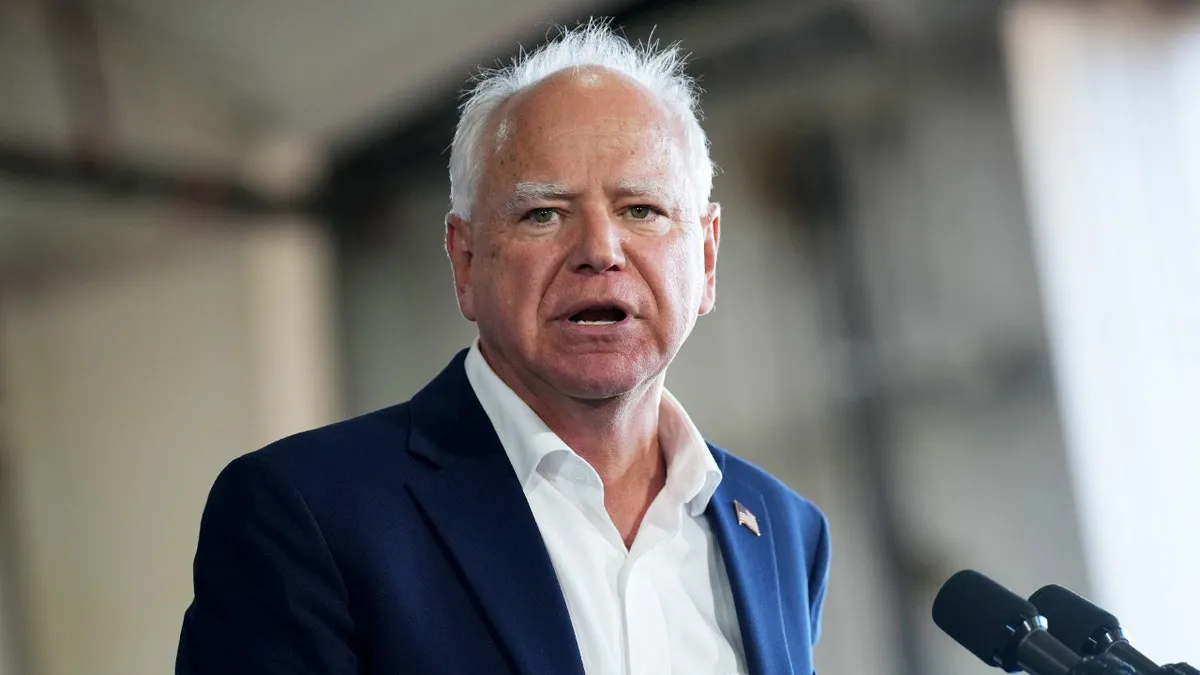In a world where music often transcends boundaries and becomes entwined with public discourse, the recent legal action taken by country artist Oliver Anthony against Minnesota Governor Tim Walz underscores a crucial issue: the intersection of artistic integrity and political use. Anthony’s decision to file a cease and desist order against Walz, demanding that the governor cease using his song without permission, has ignited a debate about the rights of artists and the responsibilities of public figures in how they utilize creative works.
Oliver Anthony, whose song “Rich Men North of Richmond” has garnered significant attention, finds himself at the center of a legal dispute with Governor Tim Walz. The issue arose when Walz used Anthony’s song in a political context, a move that Anthony claims was made without his consent and without due regard for his artistic rights. In a public statement, Anthony expressed his frustration, stating, “They have some nerve just picking a song and running with it. They never asked my permission, and I certainly don’t approve.”

The essence of Anthony’s legal action revolves around the principle of artistic control and consent. As an artist, Anthony possesses exclusive rights to how his work is used and represented. The unauthorized use of his song by a political figure raises questions about the ethical boundaries of utilizing creative content for personal or political gain. For Anthony, this issue is not merely about the financial aspects of intellectual property but also about preserving the integrity and intent behind his music.
The use of music in political campaigns and public statements is not uncommon. Songs often become emblematic of particular sentiments or causes, and their association with political figures or movements can significantly impact public perception. However, this utilization must be approached with respect for the artist’s rights and intentions. In Anthony’s case, the absence of permission and the lack of approval underscore a broader conversation about the responsibility of public figures in engaging with artistic content.
From a legal perspective, the cease and desist order issued by Anthony highlights the artist’s right to control the use of their work. Intellectual property laws protect creators from unauthorized exploitation of their content, ensuring that their works are used in ways that align with their personal and professional values. By filing this order, Anthony is asserting his right to manage how his music is employed and ensuring that his artistic vision is not compromised.

The broader implications of this legal action extend beyond the immediate dispute between Anthony and Walz. It serves as a reminder of the importance of obtaining permission when using creative works and the potential consequences of neglecting this responsibility. Public figures, whether politicians, celebrities, or activists, must navigate the delicate balance between leveraging cultural products for their messages and respecting the creators who produce them.
Furthermore, Anthony’s legal action prompts reflection on the role of artists in political discourse. While many artists willingly engage with political issues and use their platform to express their views, there are also those who prefer to maintain a clear separation between their creative work and political commentary. Anthony’s stance illustrates the diversity of perspectives within the artistic community regarding political involvement and the need for clear communication and consent in these matters.
In the realm of public discourse, where creative works often become symbols of broader social and political issues, the need for respect and consent remains paramount. Anthony’s decision to take legal action is a testament to his commitment to preserving the integrity of his work and asserting his rights as an artist. It also serves as a reminder to public figures about the importance of ethical engagement with artistic content and the impact that unauthorized use can have on both the creator and their work.
In conclusion, Oliver Anthony’s legal battle with Tim Walz over the unauthorized use of his song underscores the crucial principles of artistic integrity and consent. By filing a cease and desist order, Anthony is defending his rights as a creator and highlighting the importance of respecting the boundaries of intellectual property. This dispute not only addresses a specific instance of unauthorized use but also reinforces broader conversations about the ethical responsibilities of public figures and the respect due to artists in the realm of political and public discourse.
Leave a Reply